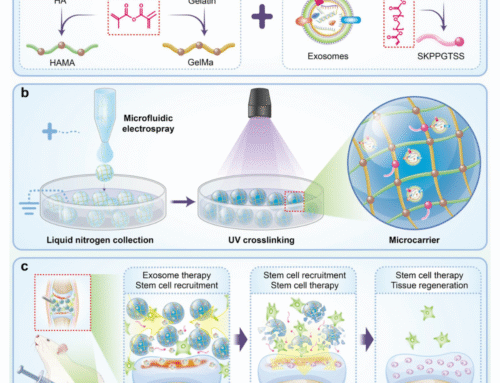Recent advancements in cell-based therapies highlight the potential of mesenchymal stromal cells (MSCs) to address various medical challenges. Equine cord blood-derived MSCs (eCB-MSCs), known for their regenerative and immunomodulatory abilities, are particularly promising for veterinary applications. Efficient expansion of these cells is crucial to meet therapeutic demands, a task not adequately met by traditional static cultures in T-flasks. This study explores the development of a scalable bioprocess using microcarriers and Vertical-Wheel (VW) bioreactors, aiming to generate large quantities of eCB-MSCs with enhanced consistency and reduced variability. The use of microcarriers offers an optimal attachment surface for adherent cell types, like MSCs, facilitating higher cell yields in dynamic suspension cultures.
 Microcarrier Culture for eCB-MSC Expansion: Microcarriers serve as attachment surfaces that allow for the expansion of adherent cells in a three-dimensional (3D) environment, maximizing cell growth within bioreactors. For eCB-MSCs, microcarrier-based culture has proven more efficient than traditional static methods, supporting higher cell densities and reproducibility. In this study, various microcarriers were tested in VW bioreactors, resulting in promising outcomes. Through the use of VW bioreactors and optimized microcarrier selection, this study demonstrated the ability to achieve cell densities up to 1E6 cells/mL while preserving critical cell properties. Additionally, the method proved effective across multiple donor samples, confirming the robustness of this microcarrier-based approach in handling donor variability.
Microcarrier Culture for eCB-MSC Expansion: Microcarriers serve as attachment surfaces that allow for the expansion of adherent cells in a three-dimensional (3D) environment, maximizing cell growth within bioreactors. For eCB-MSCs, microcarrier-based culture has proven more efficient than traditional static methods, supporting higher cell densities and reproducibility. In this study, various microcarriers were tested in VW bioreactors, resulting in promising outcomes. Through the use of VW bioreactors and optimized microcarrier selection, this study demonstrated the ability to achieve cell densities up to 1E6 cells/mL while preserving critical cell properties. Additionally, the method proved effective across multiple donor samples, confirming the robustness of this microcarrier-based approach in handling donor variability.

Five-day fold increase of three eCB-MSCs donors on top two microcarriers in 0.1 L bioreactors compared to T-flasks.
The combination of microcarriers with VW bioreactors offers several key advantages:
- High Cell Density: Microcarriers maximize available surface area, supporting cell densities significantly higher than those achievable in T-flask cultures.
- Increased Reproducibility and Homogeneity: VW bioreactors, coupled with microcarrier technology, provide a controlled environment that fosters uniform cell growth and minimizes variability.
- Scalability: Microcarrier-based bioreactor systems can be scaled up much more easily than static cultures, making them ideal for meeting the high demand for MSCs in clinical applications.

Day 5 harvesting efficiency of three eCB-MSC donors from top two microcarriers in 0.1 L bioreactors.
Conclusion: Microcarrier technology in VW bioreactors marks a key advancement in stem cell biomanufacturing, enabling efficient, large-scale eCB-MSC production with improved reproducibility and consistency. As demand for cell therapies rises, these scalable and cost-effective microcarrier-based bioreactors offer promising benefits for expanding MSC production in both veterinary and human medicine.
Ready to take your stem cell culture to the next level with microcarriers? Contact our team to help make the scale-up process smooth and efficient.






Leave A Comment